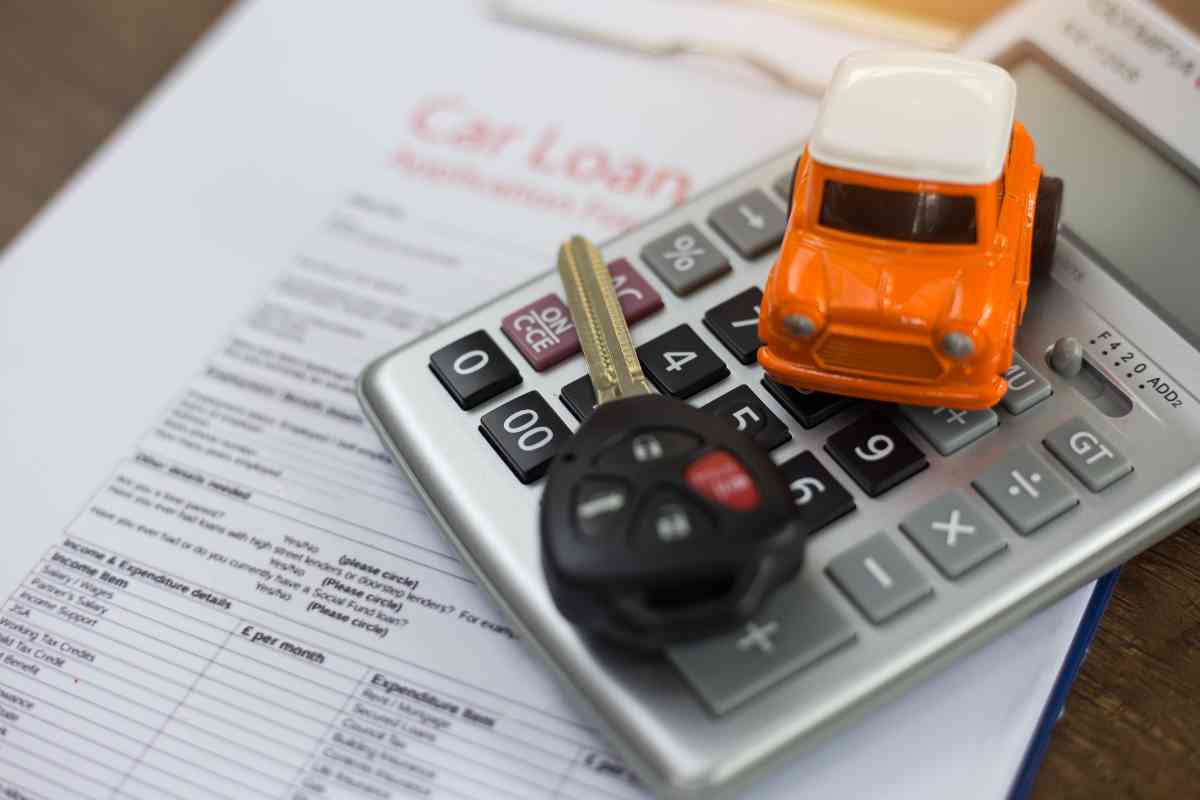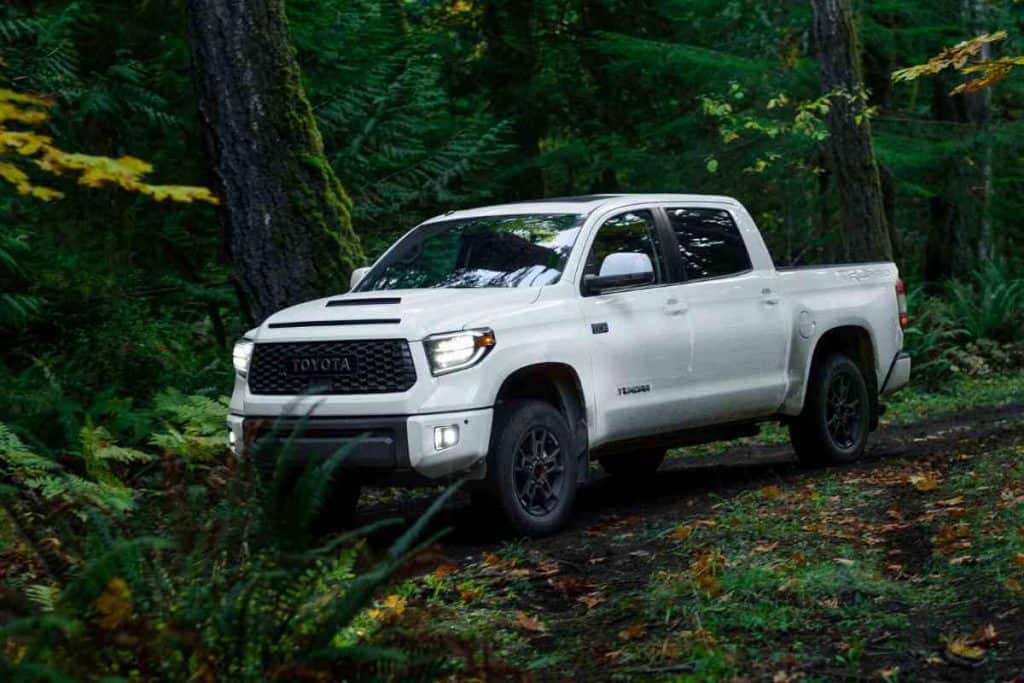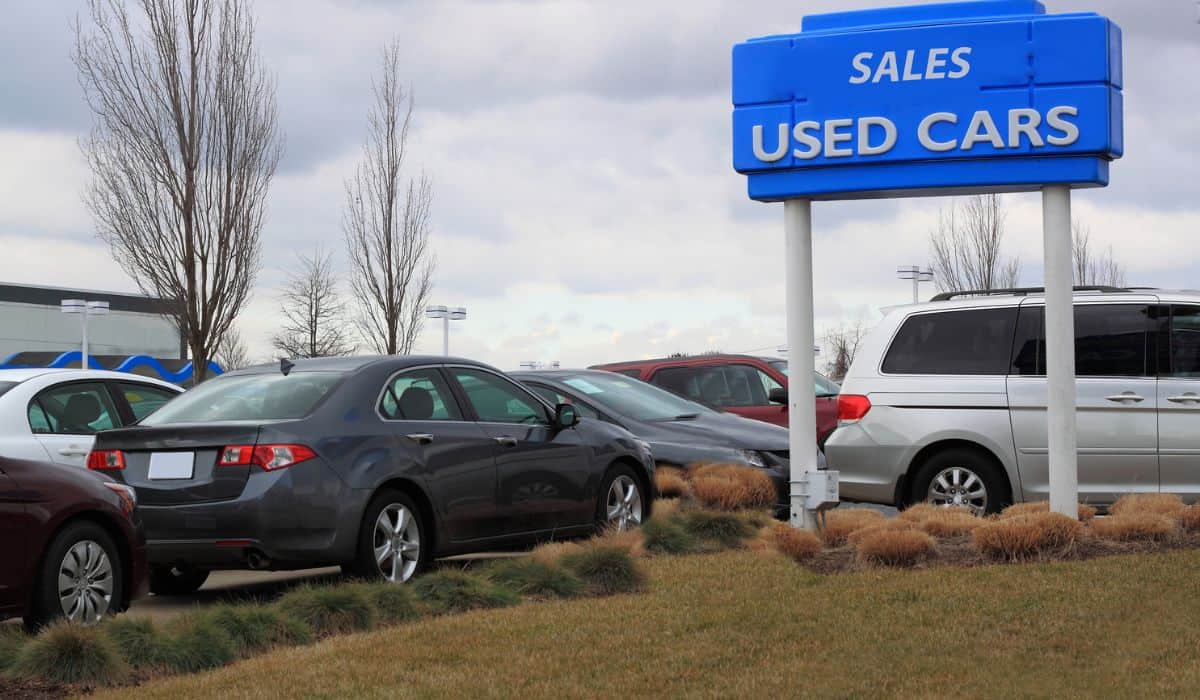Should you buy a new or used car? 12 Essential Tips Revealed!
Do you want to buy a car? It’s a big decision and comes with many questions. You’ll hear every bit of advice: buy a used car! Buy a brand new car! It’s not worth it!
In the end, you might think: is it better just to get a new car? Here’s the answer.

When it comes to purchasing a vehicle, one of the key questions that many car buyers have is: should you buy a new or used car? Each option has its own advantages and disadvantages that need to be carefully considered before making a final decision.

“Drive Past Myths: Get the Real Deal on Car Buying!”
🚘 Uncover 13 Car Buying Misconceptions with Our FREE Newsletter!
Plus you will get our quick tips, expert advice, and myth-busting insights delivered straight to your inbox.
Subscribe now and make informed decisions without the detours.
“Experts Hate This! Learn the Car Buying Secrets They Don’t Want You to Know. Free Subscription!”
This article will answer the question: should you buy a new or used car? If you have the money, care about new features, and want the most extended warranty, then buying a new car is better for you.
Plus, be it a new or used vehicle, we weigh the pros and cons of such a decision to make your car buying experience easier.
Pros and Cons of Buying a New Car
PRO: Advantages of buying a new vehicle
One of the main advantages of buying a new car is the peace of mind that comes with knowing you are the first owner. A new car typically comes with the latest technology and safety features, providing a sense of security on the road.
Let’s use a recent vehicle as an example. The 2023 Toyota Sequoia comes with plenty of features that improve its fuel economy considerably. The first-generation Sequoia is the total opposite: rudimentary, but it’s extremely reliable.
On the other hand, an older car comes with components that have worn out over time. While preventive maintenance can help you keep it running, you could run into surprises.
PRO: Warranty benefits
Should you buy a new or used car? The warranty is an essential aspect of this question.
The advantage of purchasing a new car is the warranty coverage that often accompanies it. Warranties can protect you from unexpected repair costs during the initial years of ownership, which can offer financial security.
Buying used vehicles usually comes with no warranty. However, some dealerships can provide a more basic warranty that covers the essentials.
CON: Higher upfront costs
However, one of the major drawbacks of buying a new car is the higher upfront costs associated with it. New cars tend to have a higher sticker price compared to used cars, which can put a strain on your budget. That’s not to say this always happens.
There are cases in which a used one could have higher costs up front. However, we can say that, usually, the perception is that new cars are more expensive.

Pros and Cons of Buying a Used Car
Part of the discussion around the question “should you buy a new or used car?”, revolves around costs. For many, putting the money required for the down payment is not possible. So, they consider other options.
That’s when owners ask: should I buy a new car or a used one? Shopping for a car isn’t hard, and the used counterparts are an attractive option.
PRO: Cost savings with used cars
One of the primary advantages of buying a used car is the potential cost savings. Used cars are generally less expensive than their new counterparts, allowing you to get more value for your money.
If for you, the question “should you buy a new or used car?” depends a lot of price, then you should consdering a used car, as well.
Not only that, but the used car market has also improved its financial conditions for buyers. So, while you might not be able to pay the full amount, some dealerships can accept a down payment on a used car.
PRO: Depreciation factors
Used cars also tend to depreciate at a slower rate compared to new cars. This means that a used car may retain its value better over time, providing a better return on investment if you decide to sell it in the future.
The market for pre-owned vehicles went crazy after the pandemic. So much so that used cars often hold their value consistently, as opposed to a new car. New cars lose their value rapidly.
New cars can lose their value quickly. If you want to understand more about this, we recommend this article.

CON: Potential maintenance issues
Should you buy a new or used car? An essential answer to this question is whether you’re interested in a more active maintenance.
Used cars have a downside. They may come with potential maintenance issues due to wear and tear. It’s important to factor in the additional maintenance costs that may arise when owning a used vehicle.
Certified Pre-Owned vs. New vs. Used Cars
“Certified pre-owned” isn’t a fancy word for a used car. When deciding whether to buy a new car versus a used one, it’s essential to consider this as an option. Certified pre-owned vehicles are as their name states.
These vehicles are less expensive than new cars, but more than used cars, because they’ve gone through a certification which guarantees a certain level of quality.
Differences in coverage and cost
When considering a certified pre-owned, new, or used car, it’s essential to understand the differences in coverage and cost. Certified pre-owned cars often come with extended warranties and undergo thorough inspections, offering a balance between new and used.
It’s an excellent option for those who want a used car in better conditions. The answer to “should you buy a new or used car?” could be: neither! Consider a certified pre-owned, instead!
Value retention over time
Certified pre-owned cars may also retain their value well over time, similar to new cars, providing a sense of security in your investment. This doesn’t apply to all cars, but it’s usually a rule.
Peace of mind with certified pre-owned
One of the key advantages of opting for a certified pre-owned car is the peace of mind that comes with knowing the vehicle has been rigorously inspected and meets specific quality standards.
Factors to Consider: Should You Buy A New Or Used Car?
Budget constraints
One of the primary factors to consider when deciding between a new or used car is your budget constraints. Assessing your financial situation and determining how much you can afford to spend on a vehicle is crucial in making the right choice.
This is also important to consider with how the new car market changed over the years. Some dealerships inflated prices way above MSRP, leading to same crazy figures. While this was unusual, it did make buying a new car almost impossible.
Long-term financial implications
It’s also important to evaluate the long-term financial implications of your decision. Consider factors such as depreciation, maintenance costs, and potential resale value to ensure you make a financially sound choice.
At Four Wheel Trends, we reiterate that one thing might be the sticker price, another is how much that car costs to run over a year. Always research this, as it can play a crucial role.
Does this mean that a used car is better? Not necessarily. However, if you find a good used car, with excellent maintenance records and a reliable reputation, you might be better off.
We’ve created an in-depth article for you, where we cover all the numbers behind owning a new car vs buying a used one.
Personal preferences and needs
Your personal preferences and needs should also play a significant role in your decision-making process. Consider factors such as the type of vehicle, features you desire, and how long you plan to keep the car when determining whether to buy new or used.
Some new cars might be too exciting to pass up. Here’s a list of what’s coming new.
At Four Wheel Trends, we’ve purchased vehicles in all conditions: new, used, downright knackered and certified pre-owned. Each has come with pros and cons, which makes the entire affair quite exciting.
Understanding Car Loans and Insurance for New and Used Cars
Interest rates for new vs. used car loans
When financing your car purchase, it’s crucial to understand the differences in interest rates for new and used car loans. Typically, new car loans may have lower interest rates compared to used car loans due to factors such as resale value and perceived risk.
Differences in insurance premiums
Car insurance premiums also vary between new and used cars. Insurance for new cars may be more expensive due to the higher replacement cost, while used cars generally have lower insurance premiums.
Loan approval process variations
The approval process for car loans may differ between new and used vehicles. Lenders may have specific criteria and requirements based on the age and condition of the car, influencing your loan approval chances.
Closing thoughts on should you buy a new or used car?
When faced with the decision to buy a new or used car, it’s essential to weigh the pros and cons carefully. New cars offer the latest technology and safety features, along with warranty coverage, but might come with higher upfront costs and rapid depreciation.
On the other hand, used cars can provide significant cost savings and slower depreciation rates, yet potential maintenance issues due to wear and tear cannot be ignored. It’s a numbers game, and yes, it can be overwhelming. Fortunately, you can rely on this article.
Considering certified pre-owned vehicles as a middle ground can offer a blend of the advantages of both new and used cars, with quality assurance through rigorous inspections and extended warranties, all while retaining value over time and providing peace of mind.
Ultimately, the choice between a new or used car depends on individual budget constraints, long-term financial implications, and personal preferences and needs. Understanding the nuances of car loans and insurance for both new and used cars will also play a crucial role in making an informed decision that aligns with your financial situation and lifestyle requirements.
